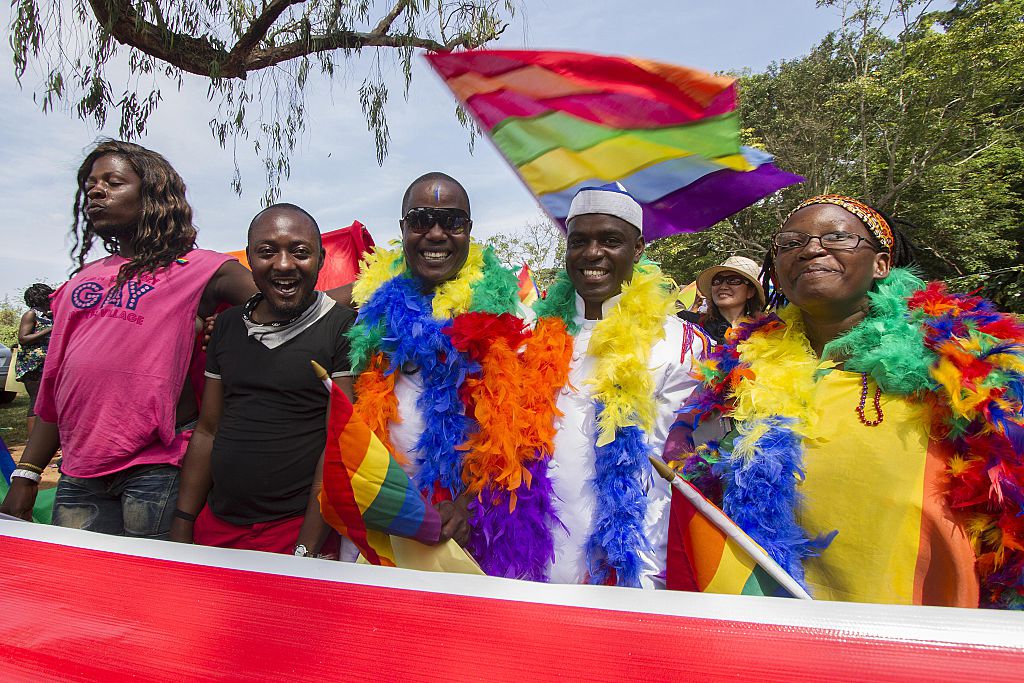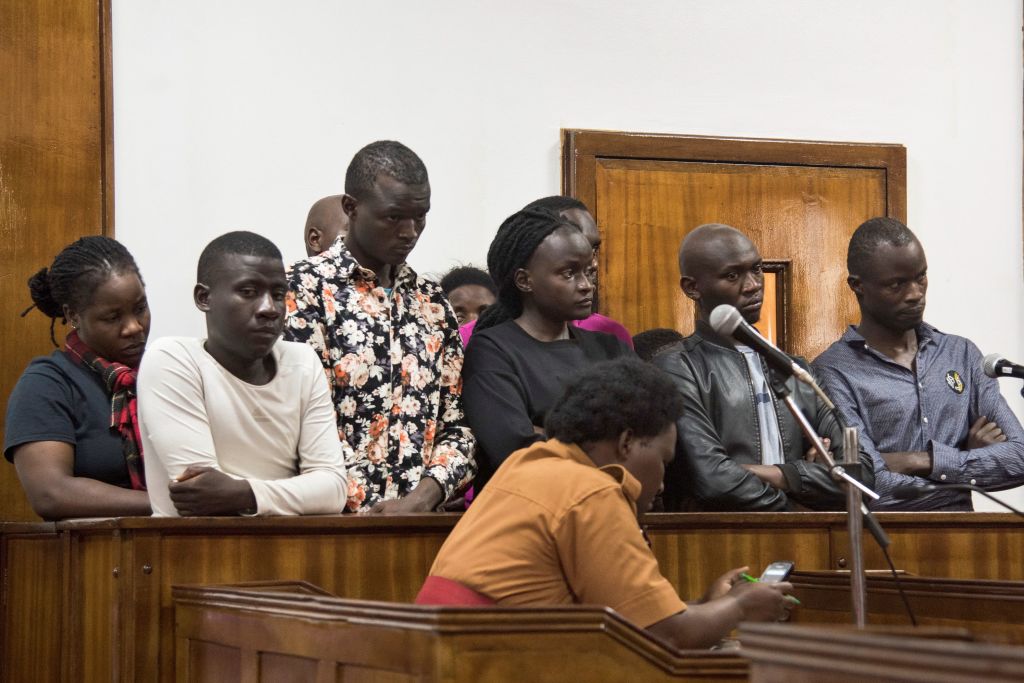Uganda considers bill to outlaw identifying as LGBTQ+ – because ban on sex doesn’t go far enough

October 2018: Ugandan LGBT refugees pose in a protected section of Kakuma refugee camp in northwest Kenya. They fled Uganda following the anti-gay law brought in 2014. (Photo by Sally Hayden/SOPA Images/LightRocket via Getty Images)
Uganda’s parliament is looking at tightening its stance against queer people by hearing a bill that would criminalise identifying as LGBTQ+.
Lawmakers say the current ban on same-sex relations, which is punishable in the East African country by up to life in prison, does not go far enough.
Uganda’s strong religious and conservative roots mean there are deep anti-LGBTQ+ views in the country.
The Ugandan parliament previously tried to re-criminalise homosexuality with a law in 2013. However, the following year, it was struck down by the Supreme Court, which ruled the legislation was wrongly passed and contravened the country’s constitution.

The 2023 Anti-Homosexuality Bill includes prohibiting touching another person “with the intention of committing the act of homosexuality”, and people found guilty of “the offence of homosexuality” face up to 10 years in jail.
The same punishment is possible for simply identifying as lesbian, gay, trans, queer, or “any other sexual or gender identity that is contrary to the binary categories of male and female”, Human Rights Watch said.
Reuters reported that the speaker of Uganda’s parliament, Anita Among, urged MPs to reject intimidation, referring to stories that some Western countries were threatening to impose travel bans on those involved in passing the law.
With the bill having had its first reading in parliament, it has now been sent to a committee, where there will be public hearings, before it returns to parliament for a debate and a vote.
Oryem Nyeko, a Uganda researcher at Human Rights Watch, said criminalising people “simply for being who they are”, as well as infringing on rights to privacy and freedoms of expression, was “one of the most extreme features” of the bill.

“Ugandan politicians should focus on passing laws that protect vulnerable minorities and affirm fundamental rights and stop targeting LGBT people for political capital,” he said.
“What the government is attempting should set off alarm bells among civil society groups in Uganda, and in the international community, as it signals increased repression and the stifling of opposition voices and civil society groups across the board”.
The Peter Tatchell Foundation has organised a protest to be held on 13 March opposite Westminster Abbey to voice opposition to the proposed legislation.
The date marks Commonwealth Day and the protest will take place “as Commonwealth leaders and King Charles arrive for the annual Commonwealth Day service”, Peter Tatchell said.
Uganda is a member of the Commonwealth.
Describing the bill as one of the most sweeping and draconian homophobic laws ever considered by any regime in the world, Tatchell added: “It would outlaw almost every aspect of LGBT+ existence.”
He noted that it breached Sections two and four of the Commonwealth Charter, Article 21 of the Uganda constitution, and Articles two and three of the African Charter of Human and People’s Rights.
Ugandan activist Abbey Kiwanuka, from the Out & Proud African LGBTI group, said they will fight the bill.
“Contrary to what the proposers of this bill claim, no one is recruiting anyone into homosexuality,” Kiwanuka said.
The founder of African Equality Foundation, Edwin Sesange, called on Commonwealth leaders to “speak out and hold countries like Uganda accountable and to respect basic human rights”.
He added: “There is no peaceful common future in the commonwealth when LGBTs are being persecuted.”
Reuters reported activists saying there has already been a recent wave of discrimination and violence against the LGBTQ+ community in the country this year, following an investigation by a parliamentary committee into reports of alleged homosexuality promotion in schools.

